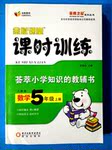题目内容
23–year–old Ann is a traditional working class woman who is happily married to her husband Don and who has given birth to two lovely daughters Patsy and Penny. Ann 1 her work with her colleague Laurie because they can 2 to each other while cleaning the buildings their work requires them to. One 3 thing about Ann is that she listens to recordings of foreign languages – Spanish, French, even Chinese 4 driving, even working. In Laurie’s eye, Ann is not normal, but Ann 5 that nobody is normal; everyone is different in 6 way. Laurie’s specific problem is not an unusual one: the 7 between a strong appetite for food and an equally strong 8 to keep in shape by dieting. She envies Ann who 9 slim while seeming to eat as much as she likes.
In fact, this characteristic is 10 . One morning, 11 after Don has taken the kids to school Ann 12 just as she is herself about to go work. She is 13 by her divorced mother, who stays alongside her as they rush to 14 and rush through examinations.
The doctor discovers that there are tumors (肿瘤) in both her ovaries (卵巢). 15 can be done about the cancer. Ann 16 from the doctor that she has only two or three months to 17 .
Shaken 18 Ann is by this news, she decides not to tell her mom and husband, and to go on living as if nothing has happened. 19 in a café, Ann begins to write down all the things she 20 to do before her death:
“1.Tell my daughters several times a day that I love them;
2.Find Don a new wife who the girls like;
3.Record Birthday Messages for the girls for every year until they are 18;
4.Go to Whale bay Beach together and have a big picnic;
5.Smoke and drink as much as I want;
6.Say just what I’m thinking;
7.Go and see Dad in jail.
….”
1.A.shares B.spares C.enjoys D.completes
2.A.talk B.work C.affect D.help
3.A.ordinary B.strange C.special D.perfect
4.A.although B.until C.unless D.while
5.A.insists B.disagrees C.imagines D.hopes
6.A.his B.some C.any D.no
7.A.relation B.struggle C.difference D.fight
8.A.desire B.difficulty C.design D.delight
9.A.shocks B.remains C.realizes D.becomes
10.A.abstract B.attractive C.abnormal D.absolute
11.A.only B.even C.ever D.just
12.A.blacks out B.turns out C.makes out D.comes out
13.A.brought B.discovered C.taken D.ordered
14.A.garage B.college C.school D.hospital
15.A.Everything B.Something C.Anything D.Nothing
16.A.informs B.learns C.takes D.tells
17.A.leave B.live C.stay D.die
18.A.since B.because C.as D.for
19.A.Arriving B.Getting C.Finding D.Sitting
20.A.instructs B.supposes C.intends D.imagines
1—5 CACDA 6—10 BBABC 11—15 DABDD 16—20 BBCDC

 小学课时作业全通练案系列答案
小学课时作业全通练案系列答案 金版课堂课时训练系列答案
金版课堂课时训练系列答案 单元全能练考卷系列答案
单元全能练考卷系列答案 新黄冈兵法密卷系列答案
新黄冈兵法密卷系列答案Charlotte Hollins faces a battle. The 23-year-old British farmer and her 21-year-old brother Ben are fighting to save farm that their father worked on since he was 14. Although confident they will succeed, she is aware of farming’s many challenges.
“You don’t often get a day off. Supermarkets put a lot of pressure on farmers to keep prices low. With fewer people working on farms it can be isolating,” she said. “There is a high rate of suicide and farming will never make you rich!”
Like others around the world, Charlotte’s generation tend to leave the farm for cities.
Oliver Robinson, 25, grew up in Yorkshire. But he never considered staying on his father and grandfather’s land. “I’m sure Dad hoped I’d stay,” he said. “I guess it’s a nice, straightforward life, but it doesn’t appeal to me. For young, ambitious people, farm life is hard.”
For Robinson, farming doesn’t offer much “in terms of money or lifestyle”. Hollins agrees that economic factors stop people from enjoying the rewards of farming. He describes it as a career that provides “for a vital human need”, allowing people to work “outdoors with nature.”
Farming is a big political issue in the UK. The “Buy British” campaigns urge consumers not to purchase cheaper imported foods. The 2001 foot and mouth crisis closed thousands of farms, stopped meat exports, and raised public consciousness about the troubles on UK farms.
Celebrity chef Jamie Oliver’s 2005 campaign to get children eating healthily also highlighted the issue.
This national concern gives hope to farmers competing with powerful supermarkets. While most people buy food from the big supermarkets, hundreds of independent Farmers’ Markets are becoming popular.
“I started going to Farmers’ Markets in direct defiance(违抗) of the big supermarkets. I seriously objected to the super-sizing of everything-what exactly do they put on our apples to make them so big and red? It’s terrible,” said Londoner Michaela Samson, 31.
【小题1】What are the challenges that British farmers face according to Charlotte Hollins?
a. loneliness b. thin profits
c. a lack of good equipment d. long working hours but slow results
| A.abc | B.abd | C.acd | D.bcd |
| A.He hoped for a simpler life |
| B.He was fed up with a hard farm life. |
| C.Farm life was too demanding though he liked it. |
| D.He hoped for something challenging and rewarding. |
| A.British people ate more British beef. |
| B.To be a beef farmer became profitable. |
| C.Diseaes dramatically reduced the amount of beef available. |
| D.Foreign farmers stopped selling beef to Britain. |
| A.Lower prices. | B.Flexible sizes. |
| C.Convenient location. | D.Healthier food. |
| A.Things are improving for independent farms in the UK. |
| B.Farming in the UK can now match the powerful supermarkets. |
| C.Most British people are doubtful of food in supermarkets. |
| D.Most British people have realized the problems facing farms and begun to help save them. |